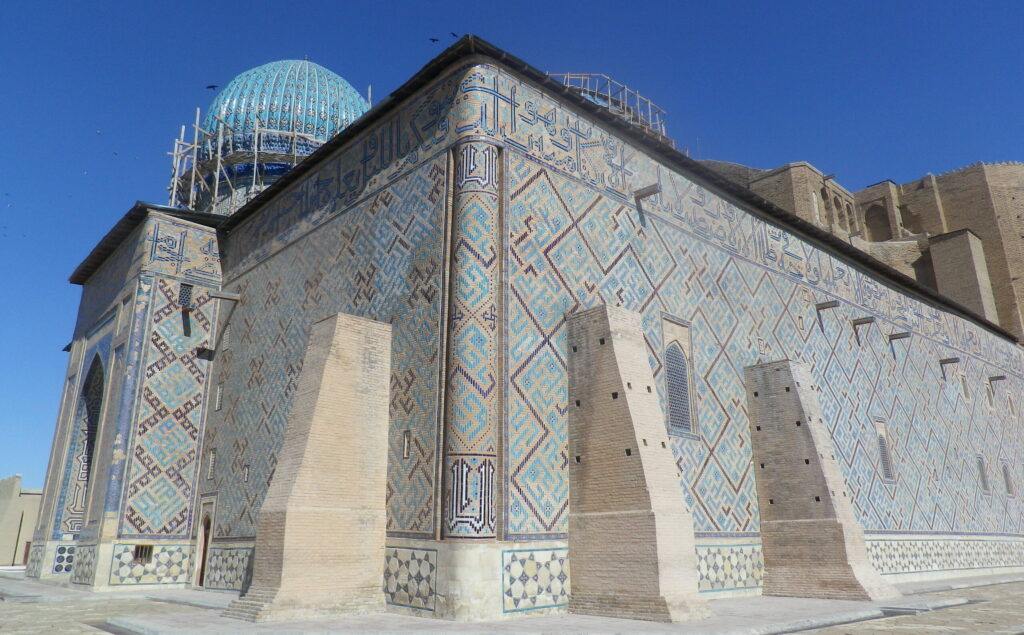Kazakhstan’s government and representatives of the Stati family have reached an agreement to cease all legal proceedings regarding the case (Republic of Kazakhstan v. Ascom Group SA) with approval from major creditors, including an offshore investment vehicle of the Stati parties called Tristan Oil Ltd. The Stati side includes the family, as well as investors in Argentem Creek Partners (the investment manager of funds that lent money to Tristan Oil), and other possible shareholders. While the agreement comes after a fourteen-year dispute over oil and gas assets in Kazakhstan, its precise details remain confidential.
Daniel Chapman, CEO of Argentem Creek Partners, was quoted in the Ministry of Justice statement as saying: “We support the framework agreement and commend President Tokayev’s decision to create a Fair Kazakhstan as part of his admirable reforms. With the settlement of this dispute, Kazakhstan is honoring international treaty obligations and, thereby, opening its doors to increased investment and heightening its economic growth potential. We welcome this new era for Kazakhstan.”
Kazakhstan’s Minister of Justice, Azamat Yeskarayev said the agreement “was made in view of the public interest and does not involve the spending of budgetary funds,” and added: “We believe that this move will have a positive effect on attracting new investments in our country and on the growth of the economy.”
A brief history of the dispute
In 1999, Tristan Oil Ltd., an offshore company, was granted exploration and production rights at the Borankol oil field and the Tolkyn gas field located in the Mangistau region of Kazakhstan through the acquisition of Kazpolmunai LLP and Tolkynneftegaz LLP in the same year. Additionally, Tristan Oil Ltd. made investments towards the construction of a modern liquefied gas processing plant to become operational by the end of the 2000s.
In 2010, assets of the Stati family were nationalized with the authorities citing their unlicensed activities, and were transferred to the trust management of KazMunayGas JSC structures. Moldovan businessmen decried the seizure as violating provisions of the Energy Charter Treaty, filed lawsuits claiming illegal seizure of their property, and began a legal battle in international jurisdictions that lasted for fourteen years. This event became a core component of the Republic of Kazakhstan v. Ascom Group SA case involving Tristan Oil Ltd.
Kazakhstan’s representatives claimed that Stati’s creditor, Argentem Creek Partners, had conspired to enforce a tainted award. However, the lawsuit was dismissed by the Supreme Court of Sweden in a final June 2023 decision awarding $497.6 million to Stati parties. The court’s decision mandated the Kazakhstan Government to disburse the initial instalment of approximately $76 million to the Stati family, along with accrued interest based on six-month U.S. Government bond rates, starting from April 2009. Additionally, the ruling included an allocation of $1.5 million to cover legal expenses.
Despite the final and binding decision in Sweden, the legal battle showed no signs of abating, with cases continuing in England, the U.S., the Netherlands, Luxembourg, Belgium and Italy. The Ministry of Justice of Kazakhstan appeared intent on prolonging these cases. For example, on 9 August 2023, they filed a demand for a jury trial in the U.S. District of Columbia based on resurrected fraud claims.
Beyond the financial implications, Kazakhstan suffered reputational harm due to the case’s high-profile, which drew attention to foreign investment risks. This situation posed a challenge to Kazakhstan’s pursuit of Permanent Normal Trade Relations (PNTR) with the U.S., particularly given the involvement of U.S. pension funds in Argentum Creek. PNTR offers favorable trade terms that could greatly enhance foreign investment and trade between the two nations.
Scrutiny falls on Nazarbayev-era appointees
According to a source interviewed by the TCA, who served in Kazakhstan’s previous government under Nursultan Nazarbayev, the former president gave an order to deal with the Moldovan businessmen to Karim Massimov, who was at the time the country’s prime minister and later became the chairman of the National Security Committee.
Massimov involved his close ally, Marat Beketayev, the deputy minister of justice from 2007 to 2016 and the minister of justice from then until his dismissal from the position in January 2022. Beketayev oversaw the international arbitration which involved both the prosecution of the Stati family and the legal defense of Kazakhstan in various international jurisdictions.
The Beketayev-led Ministry of Justice appeared to embark on a legal strategy that sought to outspend their opponent. The Stati’s legal defense budget could never match a state’s immense funds, and the strategy was presumably that by continuing and expanding the litigation, Stati and its creditors would eventually run out of capital.
In May 2024, journalists made an unsuccessful attempt to get answers from the Ministry of Justice about the spending issue. The Ministry’s spokesperson only mentioned the country’s total 2024 budget for international cases, which was a third of what it was under Beketayev before his abrupt departure from the post. In March 2024, Azat Peruashev, a member of the Mazhilis (the lower house of Kazakhstan’s parliament) and the head of the Aq Jol faction suggested that Kazakhstan’s expenditures on the legal proceedings in the Stati case were indeed exorbitant: “The decision of the Stockholm arbitration court on Kazakhstan’s payment of $544 million to the Statis has not been cancelled. Meanwhile, according to some media reports, Kazakhstan has spent twice as much on these legal battles as the amount claimed by the Statis.”
Former minister Beketayev was arrested in October 2023 at an airport while trying to flee Kazakhstan, according to the country’s Prosecutor General. The pending criminal trial and a flurry of Telegram channel posts suggest that Beketayev’s motive in pursuing the Stati case despite these high expenses was “litigation profiteering”.
Involvement of a suspicious consulting company
In dealing with the Stati case, former minister Beketayev turned to Bauyrzhan Baibek, a connection through the alumni association of the government’s Bolashak scholarship program. Baibek’s father, Kydyrgali Baibek, was Nazarbayev’s classmate. This relationship is often cited as the reason for Bauryrzhan Baibek’s meteoric rise from chief of the Presidential Administration’s protocol office to deputy leader of the Nur Otan party, then headed by Nazarbayev himself. From this position, Baibek became the mayor of Almaty, the wealthiest city in the country and in Central Asia. After the violent protests in January 2022, he left the country and is rumored to currently be residing in Northern Cyprus.
Baibek’s second wife, Zhanar Rakhmetova, owns a consulting firm called Bolashak Consulting Group, who was contracted to defend the interests of Kazakhstan in international courts in the Stati case as well as others.
Kazakhstan’s Respublika outlet reported that Beketayev “received from contractors involved in the legal battle with the Moldovan Stati businessmen a decent ‘bonus’ of allegedly $300,000 a year.” A recent update from Kazakhstan’s Anti-Corruption Agency reported that the pre-trial investigation of Beketayev had been completed although no details were provided. He is suspected of embezzling public funds “on an especially large scale”, as well as fraud and illegal participation in business activities, with the damages estimated at over KZT1 billion (around $2.1 million).
Kazakhstan appears to have ended its engagement with Bolashak Consulting after Beketayev was dismissed from his role as the Minister of Justice in January 2022.
Given the damages being sought against Beketayev, one of the most important questions related to the Stati case remains how much the Kazakhstan Government has spent to fight it. More details are likely to emerge after the start of Beketayev’s trial. Despite periodic rumors that a criminal case is being opened against Beketayev’s possible accomplice Bauyrzhan Baibek, there has been no official confirmation.
Several widely-known international firms were contracted by Bolashak Consulting.
A positive step forward
What is clear is that the main losers now are those who wanted the Stati case to continue. While the leadership of ‘Old Kazakhstan’ created the problem, its reputational costs and accrued damages landed on the shoulders of the new leadership. The new authorities will hope that their successful efforts to correct the country’s course will bring in foreign funds and further increase the confidence of potential investors.









